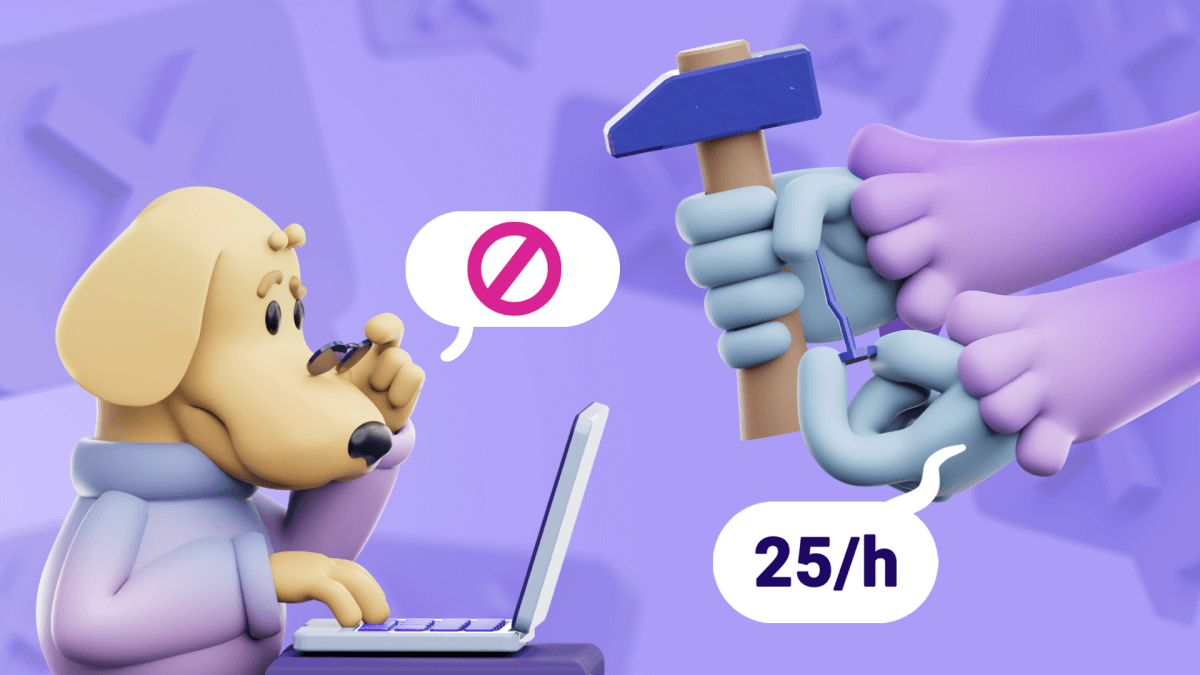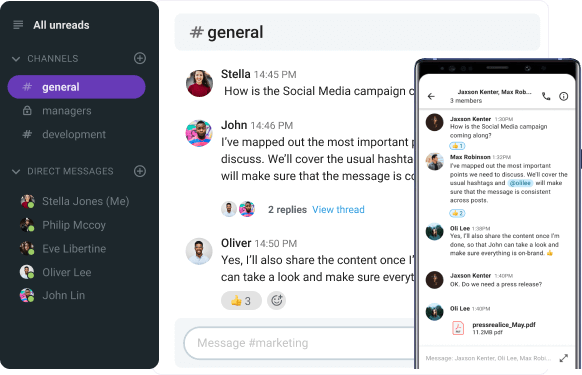Receiving job offers is a rewarding experience and a great confidence booster for all of us. Regardless of your final decision about whether to accept it, having in mind that you’re a good candidate who stood out from the crowd improves self-esteem.
However, sometimes we need to decline a job offer due to various reasons, so we might feel uncomfortable because we are unsure what the most professional way to do so is. Furthermore, in some cases, we want to keep the door open for future opportunities, so turning down the offer is even more awkward.
The good news is that recruiters understand that some candidates have multiple offers to choose from, so it’s completely understandable that some candidates must decline offers.
Even if there’s another reason, it’s completely normal to reject a job offer, just like it’s routine for employers to reject applicants ― this is a natural part of the recruitment process.
In this article, you’ll find out:
- How to turn down a job offer respectfully and professionally,
- Whether you can reject an offer after accepting it, and
- What some good job rejection email examples are.
So, let’s dive in!

Table of Contents
What are the good reasons for declining a job offer?
Sometimes, we’re unsure whether we should turn down a job offer, so we need to evaluate the offer against several crucial criteria such as:
- Salary,
- Career path, and
- Company’s values.
On the other hand, you might be afraid that you would regret missing a great opportunity, so you’re uncertain about what to do.
Thus, before we dig deeper into tips on how to turn down job offers professionally, let’s consider good reasons for turning down job offers in order to feel confident about your decisions.
Reason #1: There’s no work-life balance
In the contemporary hectic world, maintaining a work-life balance is a priority, not an option. Extra money isn’t worth it if you can’t take your child to a doctor’s appointment or pick them up from school.
According to an Entrepreneur’s article, good work-life balance leads to:
- Increased job satisfaction,
- Better productivity of employees as a result of improved engagement and a greater sense of commitment, and
- Fewer sick days as a result of improved health and wellness.
Taking this into account, we can conclude that both companies and employees benefit from a healthy work-life balance, since it leads to better job performance and employee satisfaction.
A company that cares for its employees and their well-being considers the employees as capital, rather than resources, which makes a great difference.
Thus, before signing the contract, don’t forget to check whether the following benefits and perks are offered by a potential employer:
- Health insurance,
- Paid time off,
- Flexible schedule,
- Retirement savings plans, and
- Remote work options.
💡 Pumble Pro Tip
Maintaining work-life balance is the responsibility of both employers and employees. If you’re not sure how to set work-life boundaries, make sure to check out our guide:
Reason #2: The offered salary is not sufficient
Perhaps one of the most common reasons for refusing job offers is an inadequate salary.
Even though you shouldn’t rely solely on earnings when deciding whether to accept a job offer, don’t underestimate yourself ― consider the compensation range of your position on the market, as well as your level of experience.
Reason #3: No career growth opportunity
Although earnings play an important role when it comes to deciding whether to accept a job offer, it shouldn’t be your ultimate deciding factor. Instead, consider career opportunities in the company that will help you meet your career goals.
According to research, one of the top reasons people leave their jobs is limited advancement opportunities.
Career opportunities are essential for employee career satisfaction, because they lead to:
- Increased salary,
- Additional motivation,
- Better opportunities for the future, and
- Improved confidence.
Therefore, growing opportunities within a company should be one of the key factors when considering accepting a job offer. Next time you evaluate an offer, don’t forget to pay attention to:
- Opportunities for a work promotion,
- Career development services such as mentorship programs, and
- Education courses and training.
Reason #4: Unclear or too many responsibilities
Before you accept a job offer, you need to have a clear idea about the job role, i.e. you need to know the following details:
- Your responsibilities,
- Working process, and
- Objectives.
In other words, you need to make sure you know what would be expected from you in terms of tasks, responsibilities, a quantity of work, and deadlines.
Sometimes you can see an attractive job post that matches your qualifications and aspirations, but the job description is not clear enough or there are too many responsibilities for one person. If you don’t get clarification about your responsibilities and duties during the interview, you shouldn’t go for it.
Reason #5: You have better offers
Nowadays, having multiple job offers is a normal part of the recruitment process, so it happens that job-seekers need to evaluate and compare different offers in order to choose the best option.
In this situation, always attempt to think about the larger picture and choose an offer that gives you chances to advance, develop and succeed in the long run.
How to decline a job offer respectfully?
So, after evaluating a job offer against the crucial criteria, you’ve found yourself in a situation where you want to turn down an offer, but you’re unsure what the professional and polite way is to do so.
In order to overcome the awkwardness of this situation, follow the next tips on how to reject a job offer respectfully.
Tip #1: Respond promptly
As soon as you decide to turn down an offer, update the recruiter on your final decision, so they can continue the process of looking for the right candidates.
This way, you show that you respect their time, which helps you to keep the door open for the future.
However, if you need more time to consider the offer, you can request no more than a week to get back to them with your final decision.
Tip #2: Express gratitude for the offer
Start your email with gratitude for the job offer. Simply say:
“Thank you very much for offering me the opportunity to work at your company.”
Aside from that, always remember to thank the hiring team for their time and express your positive impressions of the hiring process. Kind words cost you nothing but may be worth a lot.
Tip #3: Provide a reason, but don’t go into too much detail
A brief explanation of your decision is valuable feedback for any employer, which can help them become more aware of the main issues of the recruitment process.
In some cases, an employer may struggle to hire people due to insufficient compensation packages or benefits, so getting feedback from candidates who got better offers can help them realize how to fix the issue and attract more people.
For instance, when stating your decision, you can simply say that you’re not accepting the offer as it’s not the right fit for your career goals, or the salary is outside your expectation.
However, don’t over-explain your decision such as mentioning your current salary or sharing plans for your future career.
Tip #4: Suggest staying in touch
Even though you strongly believe a position is not a good fit for you, always attempt to keep the networking door open. You never know what the future holds, so don’t take your decision for granted.
For instance, the company may open a new role in the future, which might be more suitable for you and might match your career goals.
💡 Pumble Pro Tip
Not sure how to stay in touch with your professional contacts? Check out our blog post:
How to turn down a job offer due to salary?
As we mentioned before, one of the key reasons for rejecting a job offer is a salary issue. So, let’s see what to do when you encounter this situation.
Step #1: Evaluate the offer
Before you start writing a rejection email, ponder over your priorities.
Does a salary play a crucial role in your job satisfaction? What about work-life balance, benefits, and career growth opportunities?
Attempt to evaluate your prospective employer against these criteria before you make a final decision. However, always keep in mind your minimum acceptable salary.
Step #2: Research the average salary for the position
Always ask yourself whether your salary expectations are realistic.
Knowing the market average and considering your level of experience can be a good baseline for determining a good salary for the position.
Step #3: Consider the promotion policy of the company
The promotion policy of a company refers to a protocol that determines how, when, and why employees qualify for a promotion.
Even though an offered salary might not be enough for you, the opportunity to get a promotion after the three months onboarding period or six months performance review can make things up.
It’s a good idea to make a pros and cons list that will help you make the best decision at the moment.
Step #4: Try to negotiate
According to a Harvard Business Review’s article: “If you intend to negotiate for a better package, make it clear that you’re serious about working for this employer. If you’re planning to mention all the options you have as leverage, you should balance that by saying why — or under what conditions — you would be happy to forgo those options and accept an offer.”
To put it differently, only negotiate a better salary when you are a hundred percent sure you would accept the job offer if the compensation package were better.
💡 Pumble Pro Tip
Persuasion and negotiation typically go hand in hand. To learn more about persuasive communication strategies you should implement in the workplace, check our blog post:
Can I turn down the offer after accepting it?
Have you ever accepted a job offer, but then changed your mind or received a better offer from another company?
The best way to come out of this uncomfortable situation is to inform the recruiter or hiring manager as soon as possible respectfully and politely. To do so, attempt to follow the next steps:
- If possible, call them instead of sending an email,
- Always apologize professionally,
- Explain your decision transparently and briefly,
- Express gratitude for the opportunity, and
- Offer to stay in touch.
Good examples of job offer rejection emails
Finally, let’s take a look at good examples of job rejection emails due to the following reasons:
- When a company is not a good fit for you,
- When there is a salary issue, and
- When there are poor work conditions.
Email #1: When a company is not a good fit for you
“Hi Maria,
Thank you so much for the opportunity to work at X company as a graphic designer. I sincerely appreciate your time and interest in hiring me.
After careful consideration, I have decided to accept another position, which is more aligned with my career path and personal goals.
I would like to mention that it was such a pleasure to meet you and I really enjoyed getting to know more about your company. I will send you a Linkedin request, so we can stay in touch in case any relevant positions come up in the future.
I sincerely hope you will find a suitable candidate for the position.
All the best,
Oliver”
Email #2: When there is a salary issue
“Dear Maria,
Thank you very much for offering me the position of graphic designer at X company.
I really appreciate the opportunity to join your company, but unfortunately, I’m declining this offer since the salary is not within my desired range.
Nevertheless, I had a great experience during the hiring process and it was such a pleasure to speak with you and learn more about the company!
Thank you for your time and I hope we’ll stay in touch!
I wish you all success.
Oliver”
Email #3: When there are poor work conditions
“Dear Maria,
Thank you so much for offering me this fantastic opportunity to join your company. I really appreciate the offer and your interest in hiring me.
Unfortunately, I must decline at this time since there is no option for remote work, which is the most preferable working model for me at this moment.
It was wonderful to speak with you and learn more about your company, so I would be more than happy to stay in touch with you in case remote working becomes available.
Thank you for your time and consideration!
Wish you all the best.
Oliver”
Final thoughts: Rejecting job offers is a normal part of the recruitment process
The hiring process goes both ways ― recruiters evaluate candidates in order to find the best fit for the position and applicants evaluate the offer to make sure it meets their needs and goals. Thus, rejecting job offers is a normal part of the recruitment process when you do so respectfully and professionally.
As soon as you decide to turn down an offer, inform the hiring manager or recruiter and briefly explain the reason. Importantly, express appreciation and gratitude for the opportunity to join the company and offer to stay in touch.
When declining an offer professionally and gracefully, you open the door for future opportunities, without burning bridges.




